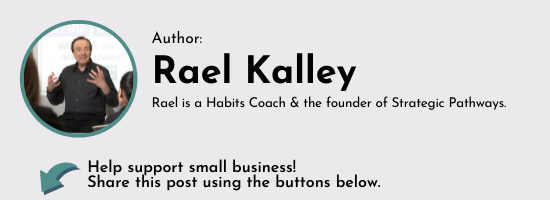The Importance Of Being Present
“Sometimes I sits and thinks, and sometimes I just sits…” A.A. Milne.
The wisdom of this quote is not so much in its veracity, but rather in the fact that the quote itself is simply not reflective of our reality. Being present is very difficult, and the truth is we rarely, if ever, “just sits.”
As much as we may think that we really aren’t thinking, there are a scant few moments, seconds really, when thoughts are not flowing through our heads. Studies have estimated that we have upwards of 60,000 thoughts each day, and while I have no idea what type of counter was attached to the heads of the study subjects to arrive at that number, I have no doubt it is an accurate representation.
This is important, because if we are always thinking about something, it is helpful to understand how these thoughts influence, and ultimately, determine our feelings, perceptions and actions. That is a key benefit of being present.
The Habit of Presence is a powerful one to acquire, as our daily performance is inextricably linked and directly driven by our thoughts and emotions.
A few weeks ago, my wife Gimalle and I were having dinner at a friend’s house. As in most situations at some point the conversation turns to the work I do. I was just beginning to explain The Habit of Presence when their 11-year-old son got all excited and loudly proclaimed, “I love the habit of presents. Mom, we should have this as a new habit in our house.”
Interestingly enough, if you think about it, the habit of being present is indeed a present.
The Gift Of Being Present
Imagine we were robots. No thoughts, no feelings, just mindlessly and repetitively doing what we have been programmed to do, always producing the same results by virtue of always delivering the same performance.
Well, we’re not. We are thinking, feeling humans, all subject to influence, and all most influenced by our internal interpretation of all those 60,000+ daily thoughts.
Being present means having the awareness of our thinking, for our thoughts become our focus and what we are focusing on is, in that moment, our tomorrow.
Not only is our focus our life, it is also the trigger of our emotions. We can all attest to times when a simple thought popping into our heads has completely changed the way we have felt in that moment. Perhaps you instantaneously replaced a scowl with a smile, a smile with a scowl, or a gentle tear found its way down your cheek.
Sometimes those thoughts remain with us for lengthy periods of time which, in turn, means we can remain stuck in an unhealthy emotional state for prolonged periods of time. This is opposite of being present.
As you may recall, our discussion last week centred on the importance of focus. The Habit of Presence, coupled with The Habit of Asking the Two Questions guides us to effectively manage our thoughts and prevents us from converting thoughts into negative and restraining emotions.
It seems like hard work, and it is.
Understand this: you are having these thoughts anyways. Why not make the shift, make the concerted effort, to be present and control, instead of being controlled by, your thinking.
Let’s make a habit of meeting like this.


